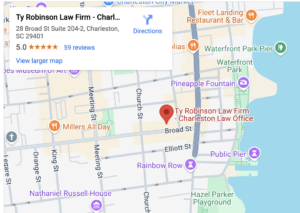
Many people use the words “claim” and “lawsuit” interchangeably. They are different, and you need to understand the differences before you pursue personal injury compensation. A claim is an informal demand for compensation. typically issued to a defendant or an insurance company. By contrast, a lawsuit is a formal legal procedure that you file in court.
Insurance Claims

Insurance is a business, and businesses exist for one primary reason—to make money. Insurance companies make money by collecting monthly premiums from their clients. Meanwhile, they lose money every time they pay a claim. This state of affairs renders your interests directly adverse to theirs. The more money you make, the more money they lose, and vice versa.
If your claim is credible, the insurance company might be willing to negotiate your claim. Since insurance adjusters are professional negotiators, however, failure to secure legal representation will disadvantage you. Don’t try to “go it alone” with a simple claim. Hire a lawyer to negotiate on your behalf.
Many insurance claims settle out of court, but it is in your best interest to retain an attorney to get the maximum compensation.
First-Party Insurance Claims
A first-party claim arises when you file a claim with your insurance company. After a car accident, for example, you might file a claim with your health insurance policy. You are the first party, and your health insurer is the second party.
Third-Party Claims
In a third-party claim, you file a claim with an at-fault party’s liability insurance policy. You might, for example, file a claim against an at-fault driver who caused a slip and fall accident that broke your leg. The at-fault driver is the first party, the liability insurance carrier is the second party, and you are the third party.
You can demand benefits under the policy even though you didn’t sign it and your name appears nowhere on it. Instead of the at-fault driver paying for your injuries, their insurance company pays the injured party up to the policy limits.
Lawsuits
If a claim is not settled, then you may file a lawsuit with the appropriate court. In Charleston, for example, the Circuit Court hears most personal injury claims. The Magistrate’s Court handles civil cases with claims up to $7,500, and some rare personal injury claims may be handled in federal court.
The Statute of Limitations
The statute of limitations determines the deadline by which you must file a lawsuit.. The typical personal injury deadline is three years after the date that the injury occurred, although certain exceptions can extend the deadline. Missing the deadline will result in a denial of your claim.
Complaint, Answer, and Default Judgments
To initiate a lawsuit, you must complete the following steps:
- File a formal written complaint. Unless you are filing in small claims court, you’ll probably need a lawyer to draft the claim for you.
- Pay a filing fee of $150. This amount is subject to change depending on the court in which you are filing.
- Engage a third party to deliver a court summons and a copy of the complaint to the defendant.
The defendant generally has 30 days to file an answer. If the defendant fails to file a timely Answer without a good excuse, the court will issue a default judgment, which means you win automatically.
Discovery
During the discovery process, each side demands evidence from the other side. The court will intervene if either party refuses to cooperate.
Discovery offers you four legal weapons:
- Depositions: Out-of-court examinations of parties or witnesses provided under oath.
- Interrogatories: Written questions that the recipient must answer truthfully.
- Demands for the production of documents and physical evidence: A party might demand a copy of a liability waiver signed by the plaintiff, for example, or ask the plaintiff to submit to a medical examination of their injuries.
- Requests for admissions: A request that the other party admit or deny certain statements to narrow the issues in dispute.
Pretrial discovery is a powerful tool for settlement because it often generates evidence that is decisive for one side.
Common Pretrial Motions
A motion is a request for a court to do something.
Common pretrial motions include:
- A Motion to Dismiss asserts that the judge should dismiss the case for legal reasons–lack of jurisdiction, for example, or expiration of the statute of limitations.
- A Motion for Summary Judgement asserts that the evidence shows no genuine dispute of material fact.
- A Motion to Compel Discovery seeks to compel one side to release evidence during pretrial discovery.
- A Motion in Limine is a motion to suppress allegedly inadmissible evidence.
- A Motion for a Change of Venue requests the court to move the trial to a different location.
Dozens of other types of motions are common.
Contact a South Carolina Personal Injury Lawyer for A Free Consultation
Don’t try to handle a valuable insurance claim or a personal injury claim without a lawyer. Even if you “win”, the amount you win might be far less than the actual value of your claim.
Contact Ty Robinson Law Firm, a Charleston, SC law firm with years of experience handling personal injury claims and lawsuits. Don’t worry about attorney’s fees because under our contingency fee arrangement, you only pay attorney’s fees if you win. Call us today at (843) 278-2222 to schedule a free consultation.



